‘Human Again’: Westwood Warrior Marching Band Carries on Timeless Legacy
September 16, 2021
Scattered across a 300 foot stretch of fading yard lines sat the occasional convoy for athletics: six or ten cars, trunks agape and flooding with lacrosse sticks or football gear. Otherwise in this place it was strangely derelict, and when unobstructed by its usual blanket of bodies, it bore only the shadow of an empty tower. Some might’ve thought it was a parking lot. Others might have known it for what it was, a space cleared out for the marching band during the afternoons and mornings, and reserved for staff and students during the school day. But perhaps fewer would have realized, standing here as I did months ago, that this quiet concrete slab could become the grounds of history. Cue July 26.
It’s morning, and for most of the summer band camp members who stand thronging the practice pad at 8:00 AM, this is the earliest start they’ve had since 2019. There are a few here and there — like mellophone section leader Ian Kim ‘22 — who had participated in a non-competitive marching season during the pandemic, but directors Ms. Brittany Dacy, Mr. Thomas Turpin, and Mr. Brandon Winters know their students well enough to tell that even the upperclassmen seem among the uninitiated.
You can imagine how the underclassmen must feel. In any typical year, these 90-something freshmen would have three more experienced “vet” grades to guide them through the season. Now for the first time, only half of the band students have marched a show in a Bands of America (BOA) competition, and the other half are still entirely foreign to a season unaffected by COVID-19 safety guidelines. The directors are up against a challenge they never thought they would have to face.
“We’re coming back together to learn how to be humans,” Ms. Dacy said. “To learn how to talk to each other, to learn how to deal with each other’s emotions, [and] to learn how to support each other when we’re exhausted. We didn’t have that last year. We’re in it together right now.”
At least they’re not the only ones. This marching season, every UIL and BOA regular has a chance to start fresh. Of course, it is a difficult circumstance; teaching staff are back to the basics of their program, before any show had been marched at their school. But likewise it could be an advantage for those willing to learn quickly, a group which, according to parents, definitely includes Westwood.
“We’ve never sounded this good this early before,” one mother gushed while listening to a recording of the band’s current show, Human Again.
Whatever the odds may be, Kim is determined to reinforce the band’s status by exceeding their 2019 competition rankings. It won’t be easy; Believe was the most successful show in Westwood Warrior Marching Band history with their first-ever entry into BOA Austin finals. Kim, however, is a firm believer in their potential.
“Once we have a clean slate, the only thing left is to build up from there,” Kim said.
On the field, you can see Kim’s resilience in everything he does: he stands tall and attentive at standby, always quick to set, but never tensely focused; he is calm, wearing a bright look on his face that only comes with such a performance-ready attitude. A few feet away, alum and marching tech Cordell Foulk wears that same face.
It’s an unmistakable staple of Foulk, along with the white joggers and visor hat he almost always has on. There’s no hiding the smile behind his surgical mask as he watches his section, the mellophones, get to experience band class the way he had just a few years ago.
Foulk has seen the worst of the prior pandemic year, and though he gave students his all (sometimes running late to work from helping them with their show, Go West), it was clear to him that such a limited social atmosphere had put everyone at a mental low, with himself included.
“There is a huge amount of growth that you go through as a person from actually doing a season,” Foulk said. “So yes, that’s a factor that’s missing.”
But it’s not unrecoverable. On Friday, August 27, students got their first taste of a “real” football game, a chance to both exhibit their hard work and connect as a community. The bus ride to the Kelly Reeves stadium is anything but silent. While mellophone players toss around a pillow sack of candy with its name, “Sheila,” written in sharpie, the classmates laugh and talk amongst themselves, occasionally shouting things like ‘Hi, cousin Spencer!’ at a giraffe statue or ‘Everybody, kick your legs up and screw!’ as the bus thumps over a railroad track.
Traditions like these which may have been assumed lost are what push Kim and his peers through the nearly 17 hour day, which started with an early morning rehearsal before 7:30 AM. Practice is more like a mind game; at all times, there can be more than seven things to focus on: tempo, leg posture, feet timing, horn angle, rhythms and notes, breathing, finger positions, and much more. It’s no easy feat, especially after a full school day, but the directors understand that (they were students, too). Their teaching style emphasizes responsiveness in order to help students stay engaged and frequent encouragement for those undergoing stress.
“Continuing to hammer in that, ‘Hey, band is still your safe space, and we’re still here for you,’ [is] a big socio-emotional goal that I have for this year,” Mr. Turpin said.
Ms. Dacy nodded as he spoke.
“I believe that [students] can do things that seem hard or impossible,” Ms. Dacy said. “When we say ‘who cares if we fail?’ and we actually go for it, we succeed so much more.”
Even though the pandemic had a negative impact on mental health, the directors believe it was a great opportunity for students to learn to take risks when there wasn’t a competition at stake. To Kim, it was a “preview” of a normal year; rather than focusing on the show, students had an opportunity to work one-on-one with directors and techs to improve their marching fundamentals.
The payoff was incredible. Earlier than any other year prior, the Westwood Warrior Marching Band was able to read and play part one of Human Again by the second week of summer band camp. Foulk is, quite literally, blown away by the students’ progress.
“Genuinely, from my perspective, this is the strongest version of the Westwood band, including before COVID,” Foulk said. “That surprised me; I was prepared for a huge setback.”
The Westwood Warrior Marching Band is ready to share what it means to become Human Again during BOA Austin, on Saturday, Sept. 25. The performance will begin at 3:15 PM at the Kelly Reeves Athletic Complex. Their show features the transformative cast of Beauty and the Beast, such as Mrs. Potts, Chip, Lumiere, and of course Belle as they strive to and ultimately overcome a curse that turned them into objects. Though the themes resonate deeply with students, staff, and audience members during their recovery process to an in-person experience, Mr. Winters explained that the planning staff “didn’t do that on purpose; it just kind of fit.” Ms. Dacy called it a “happy accident.”
Out of five selections that could have been chosen for this year’s production, the directors felt that a show inspired by Disney would, like Believe’s Christmas theme, best impact the audience and judges.
“It’s something everyone can relate to: not feeling themselves but then feeling themselves,” Ms. Dacy said. “And that’s kind of what we want [students] to feel, like we were struggling last year, but we’re going to get through it. So we’re going to use this show to bring out those emotions so that they can put that into their performance.”
Later in Ms. Dacy’s office, Foulk tells me how that could not only improve a performance but save someone’s life.
Foulk graduated from Westwood in 2019, and over the course of his four years here, there were a number of things the band program gave to him that he said he didn’t get outside of school. His section and directors became his real family, and the band hall became his real home. When Foulk stepped foot on that same practice pad students use today, nothing — not the quiz he had to take tomorrow, or the homework he had yet to finish — mattered more than that moment. That’s why his performance on the field was never an act; he had a situation in his life reflective of every emotion he needed to use, like a palette of memories to pull on.
Choreography became an outlet for those emotions he had bottled up inside, and after a full rehearsal, revisiting so many memories of hope, joy, frustration, fear, and sadness became overwhelming.
“I was the most vulnerable version of myself on the field, and no one [knew],” Foulk said.
It fueled him to push through every day, despite how hard it might be to focus or even stay awake. Authenticity was his power when performing to an audience who needed to be and were there to be affected. Anyone in that crowd could be having the worst day of their life, he told me.
“They might even feel like it is not worth being on this planet, experiencing all these negative things that they’re feeling,” Foulk said. “But, there’s at least one person that shows up to these competitions as a Hail Mary to try and get some life injected back into at least one person.”
It can be scary, sometimes, to risk someone’s future like that through the intensity of a marching production. But it gives Foulk a purpose that validates his pursuit of music education and fine arts; eventually, he plans to become a band director. Kim, too, found his purpose after a nearly four-year experience in marching band. He notes three keywords that were a common theme among the directors, students, and alumni.
“Placing well [in competitions] and making history is not what band is about,” Kim said. “It’s not what art is about. Those are great things, but [they don’t] define our legacy, because band is about pride, passion, and family.”
These are the values that directors and staff dedicate their lives to embodying, in hopes that students will carry them on and become examples to others.
“We are the largest student organization on campus,” Mr. Turpin said, “So we have a responsibility to put the most positive face forward of the band program.”
As with Foulk’s, there is no pretense to Mr. Turpin’s words. On the back of every rehearsal shirt are those three special words: pride, passion, and family. Written in bold text as a reminder to everyone that more to what is visible — the organization, work, and outcome — there is something wholly unique to this program: experiences that are, for most students, impossible anywhere else but here and now. This is what Kim thinks about as he and 300 other peers pack into the band hall, below posters tacked to the walls of past productions and procedure standards. He enters smiling and, with his mellophone in hand, walks out in a crowd of classmates that are more than just performers, students, or even friends. They’re his family. His real family.

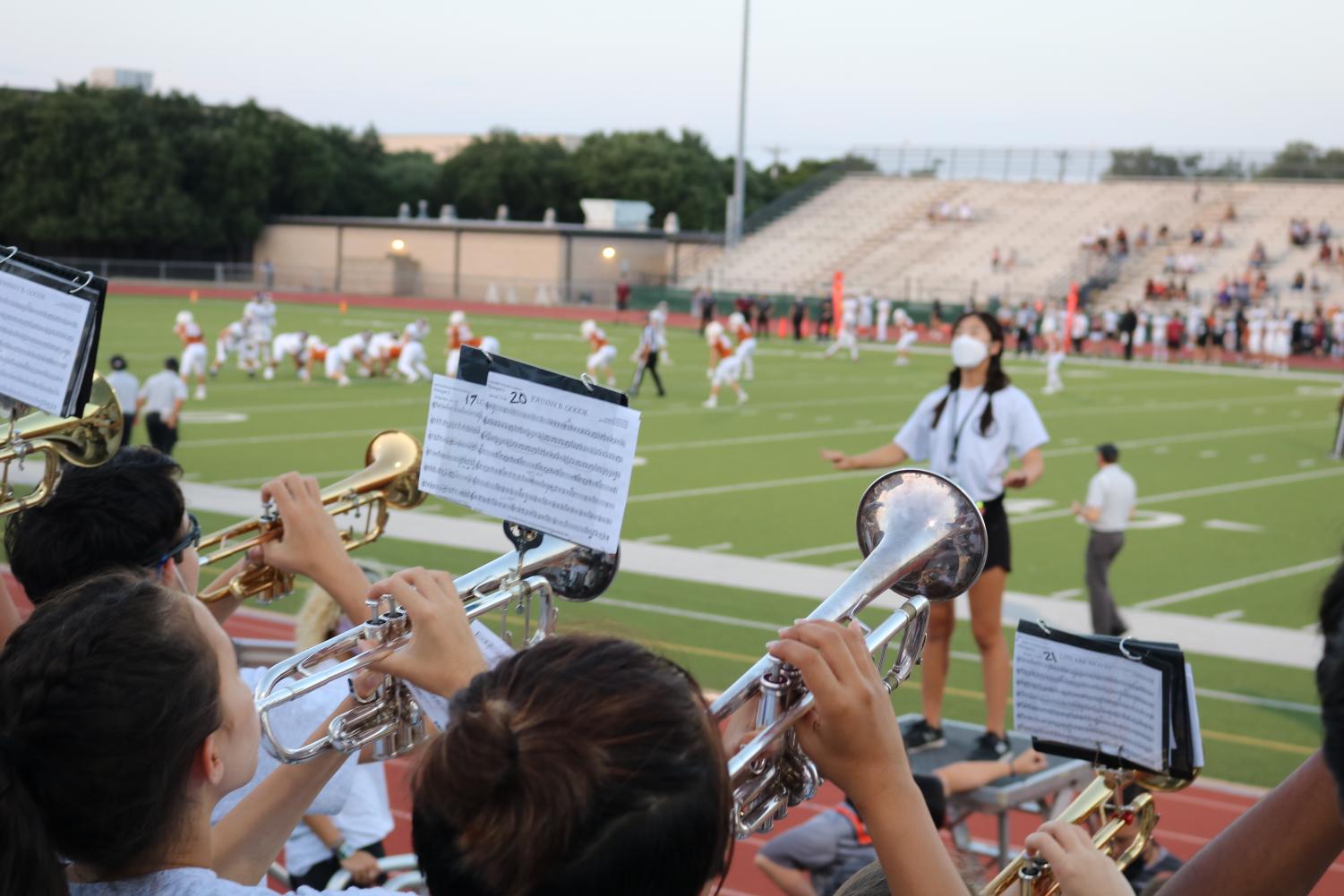
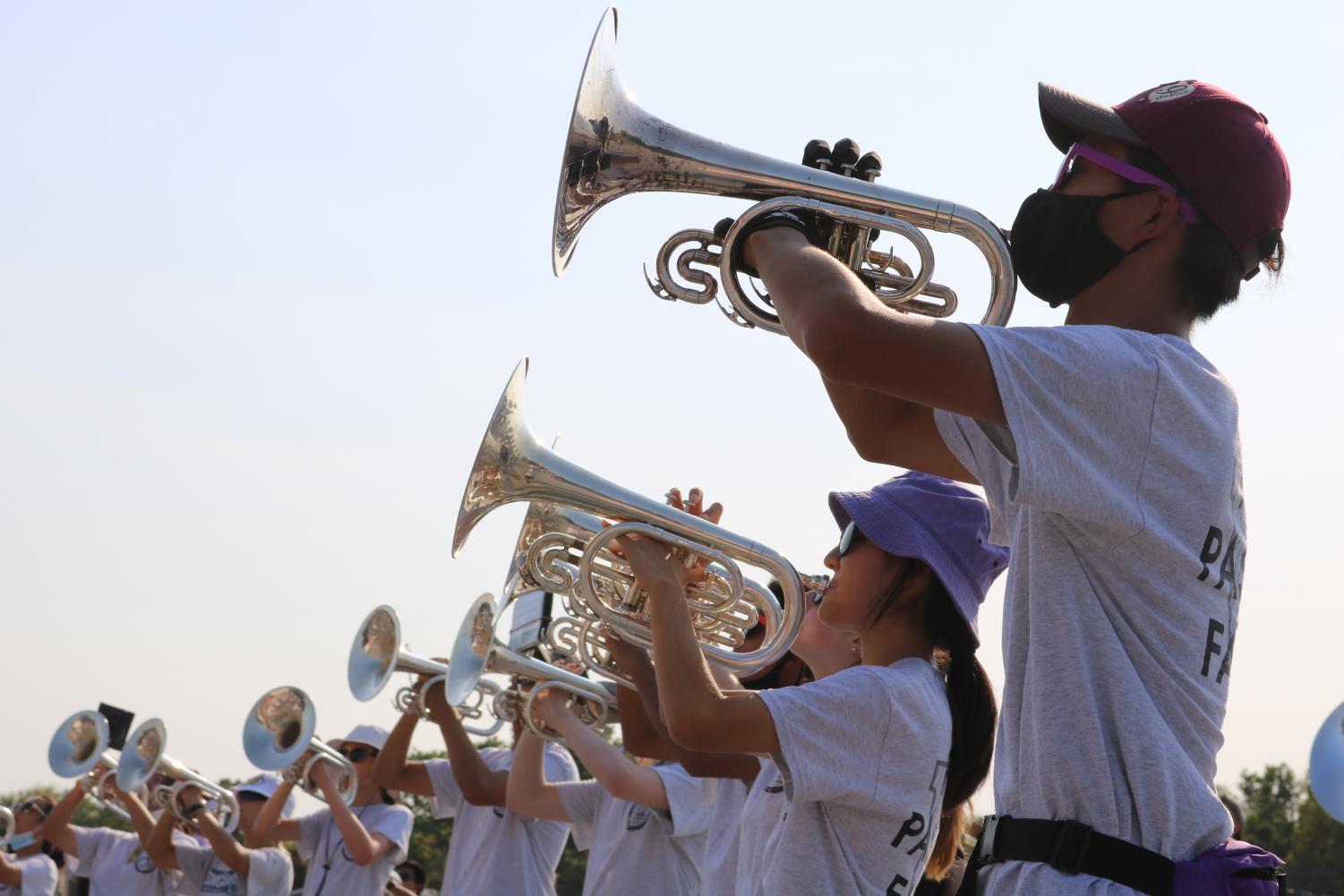
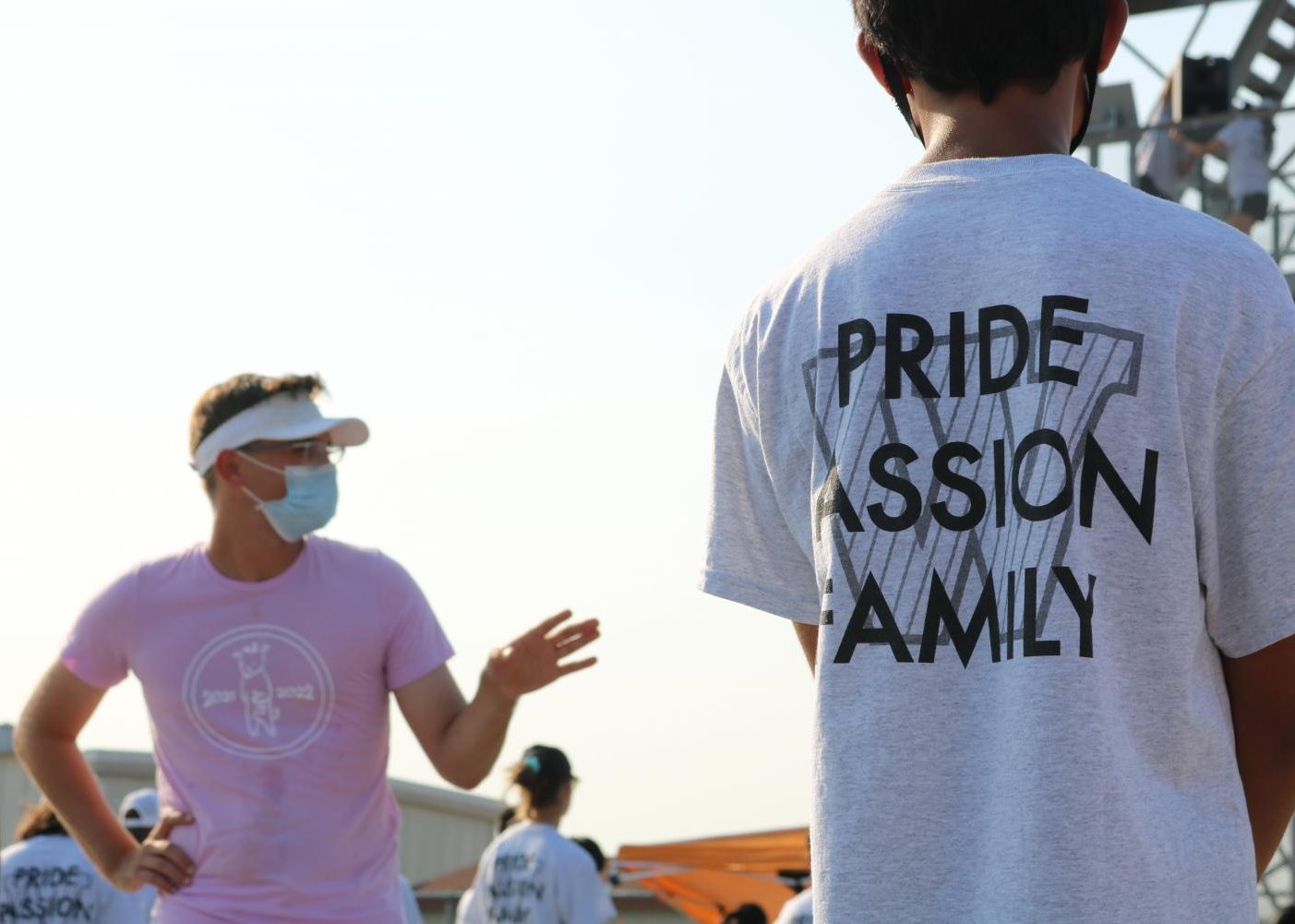
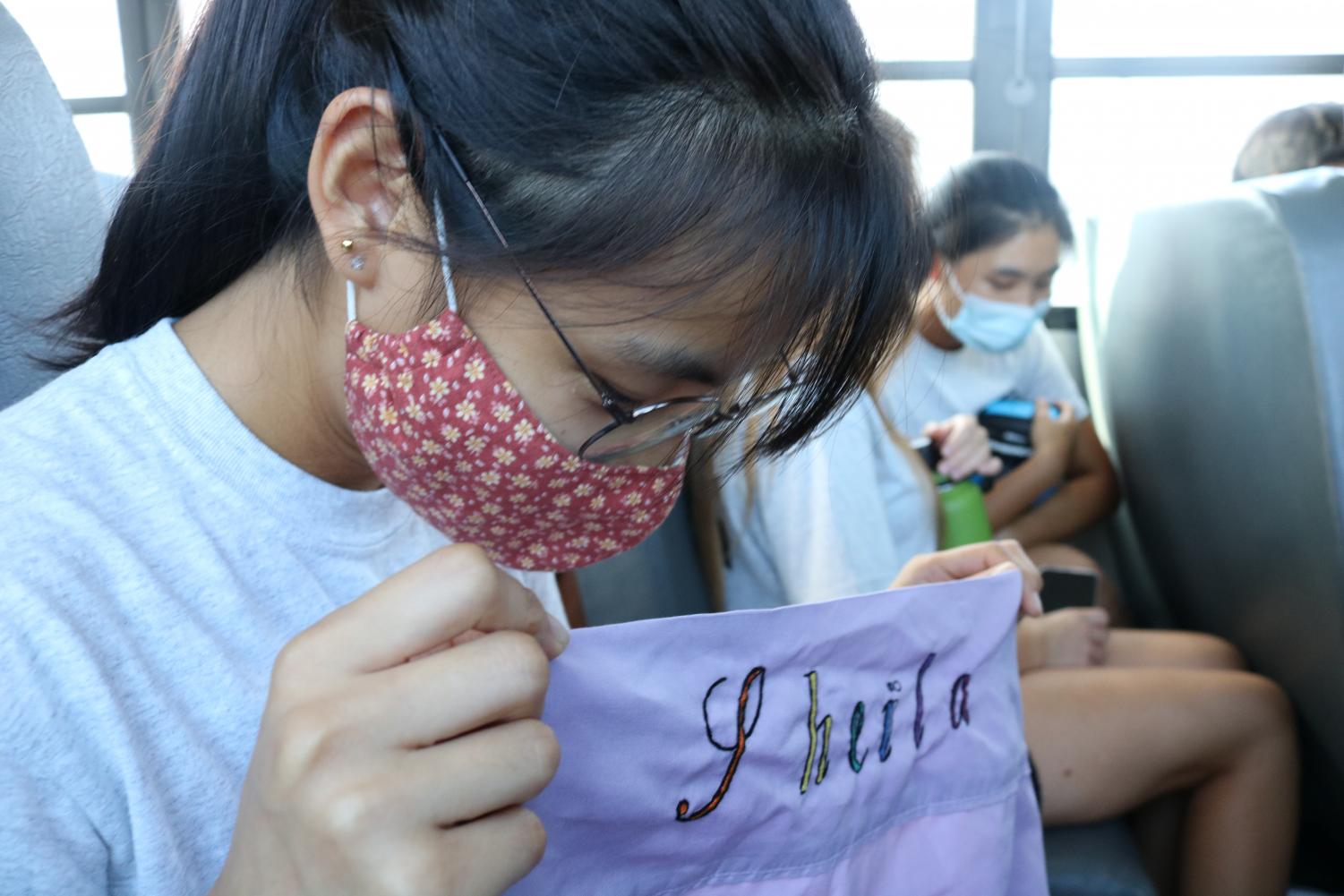
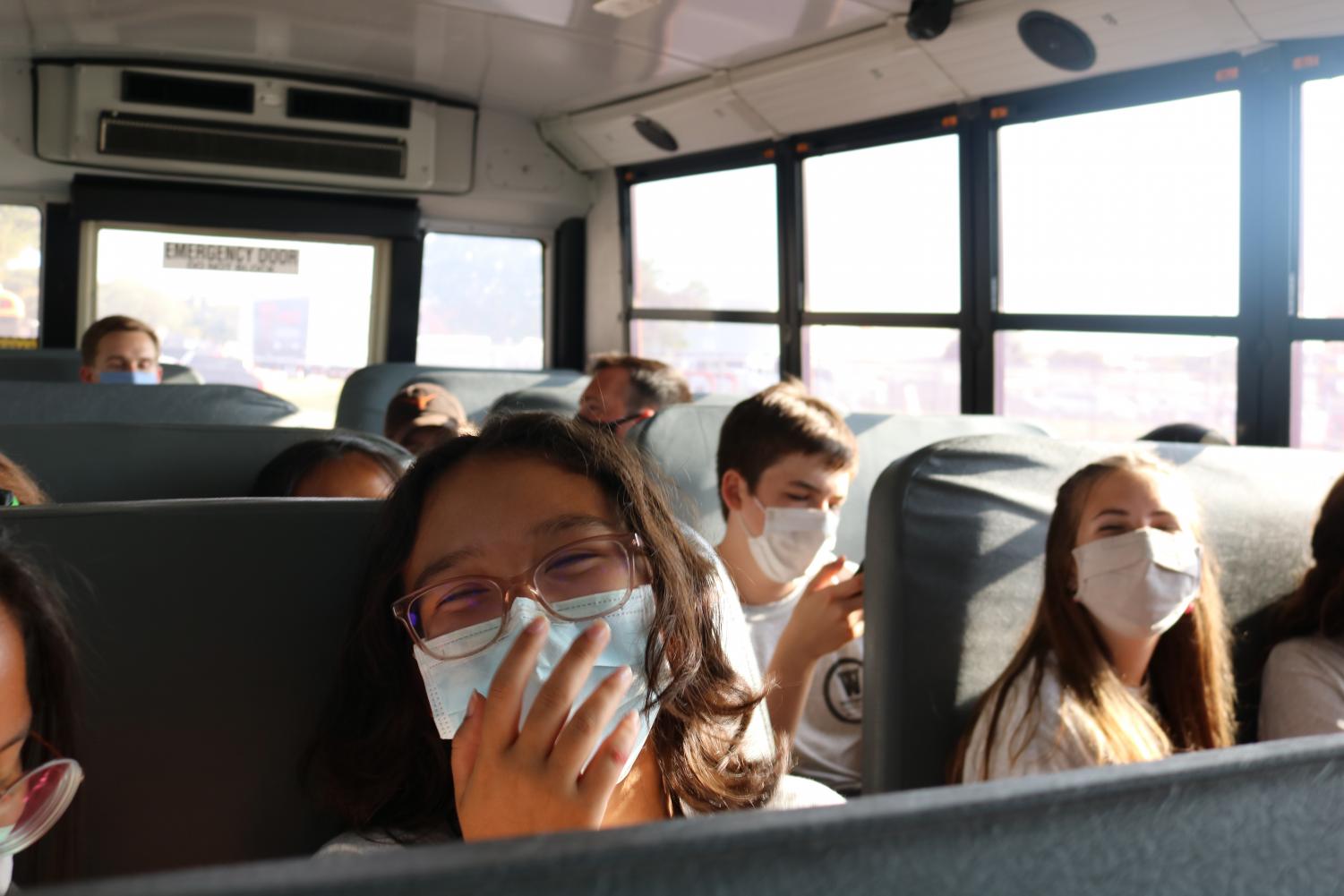
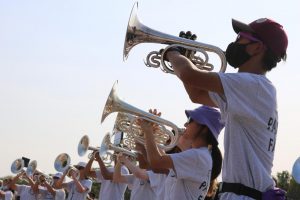
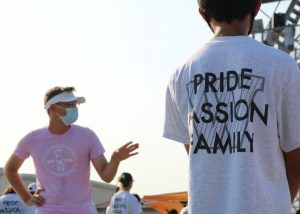
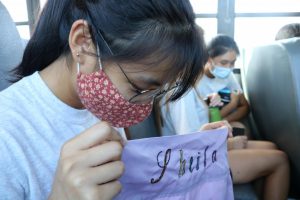
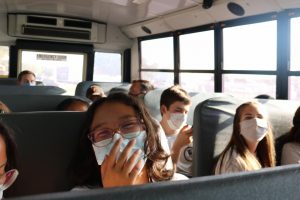
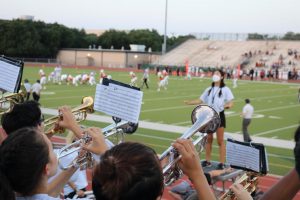
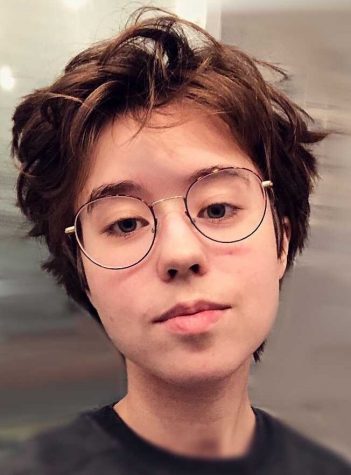

Adina Brown • Sep 20, 2021 at 3:35 pm
Beautifully written, Hannah. I love how you got feedback from students & help us see the value of the community of band & description of the show! Praying it’s a great year for all of you students!